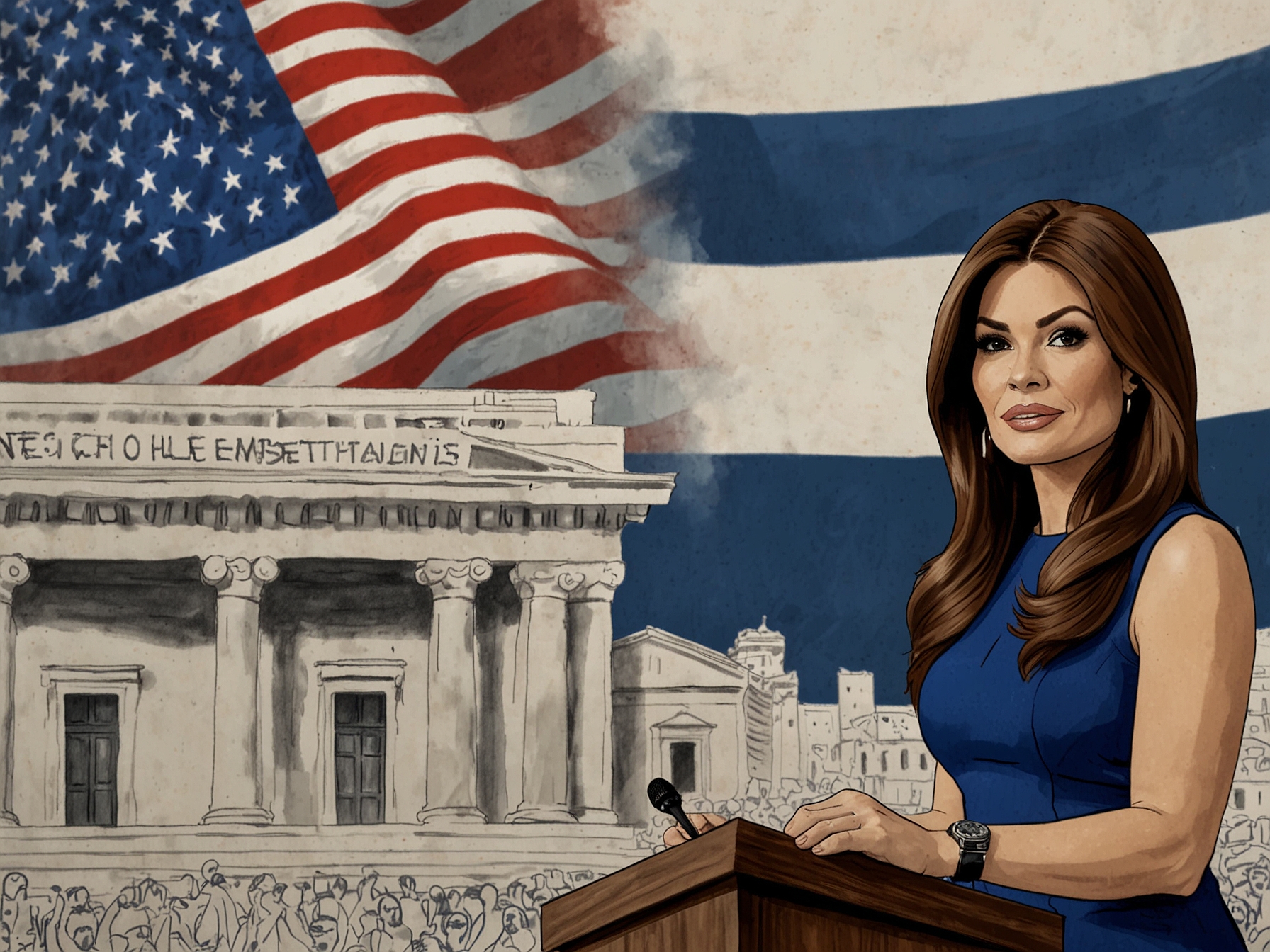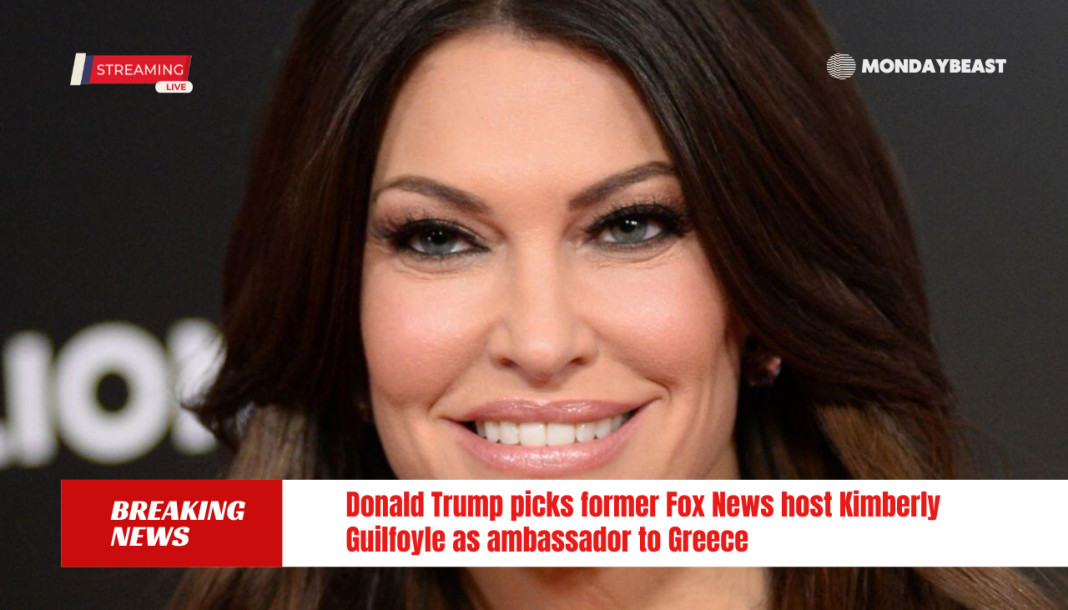Trump’s Unconventional Choice
Donald Trump’s announcement of Kimberly Guilfoyle as ambassador to Greece raises eyebrows. Many wonder if her close ties to the Trump family will shape U.S.-Greek relations. She’s not just a former Fox News host; she’s also engaged to Donald Trump Jr. Her selection adds another layer to the already intricate web of familial and political connections.
Guilfoyle’s background is compelling. Once married to California Governor Gavin Newsom, her career has been quite diverse. She co-hosted ‘The Five’ on Fox News for years and also served as a prosecutor.

Trump’s social media post highlighted her qualifications. But can a media personality really represent U.S. interests abroad? That’s a question worth pondering.
The implications of her appointment cannot be understated. Some critics worry that her past involvement with the January 6th Capitol riot could overshadow her role. After all, she appeared before the House committee investigating that chaotic day.
Such scrutiny could affect how foreign leaders perceive her. How can one navigate international diplomacy with such history?
The Trump Family Dynamic

Guilfoyle is just the latest in a trend. Trump’s picks seem closely tied to his family. The appointment of Charles Kushner as ambassador to France is a prime example.
Then there’s Massad Boulos, Tiffany Trump’s father-in-law, receiving an administration role. This strategy raises questions about nepotism. Is it wise to prioritize familial ties over traditional qualifications?
Supporters may see it as a power move, strengthening the Trump brand. On the flip side, opponents argue it undermines the integrity of public service. Can a family-centered approach really be effective in politics? Or does it limit diversity and talent?
Support and Criticism

Guilfoyle expressed her excitement over the nomination. She stated she was “honored” in a recent post. But public opinion is divided.
Some see her as an articulate spokesperson for the administration. Others point to her past affiliation with controversial events. What does this mean for her acceptance in Greece?
Public figures often face scrutiny. Guilfoyle is no exception. As she steps into this role, she confronts both support and skepticism.
How will she balance these viewpoints while promoting U.S. interests? It’s a daunting task, especially in an ever-changing political landscape.
Conclusion
In the end, Kimberly Guilfoyle’s appointment is multi-faceted. It intertwines personal relationships, political strategy, and international diplomacy. What does this mean moving forward?
Will she excel in her duties, or will the obstacles prove too formidable? Only time will tell.
As we observe Guilfoyle’s journey, we can ask: Is this the new norm in American politics? Are qualities like loyalty and personal connection more valued than traditional expertise? A shift is taking place, and it’s not just about policies anymore. It’s about relationships, identities, and legacies.




